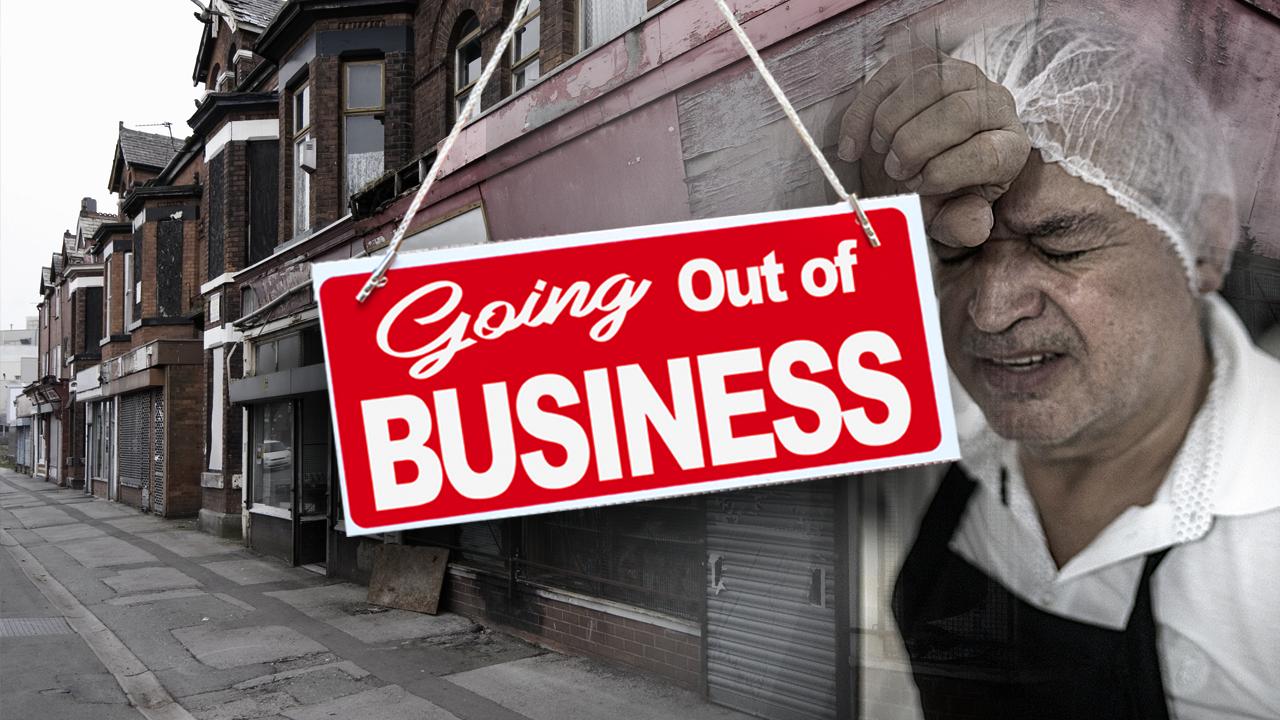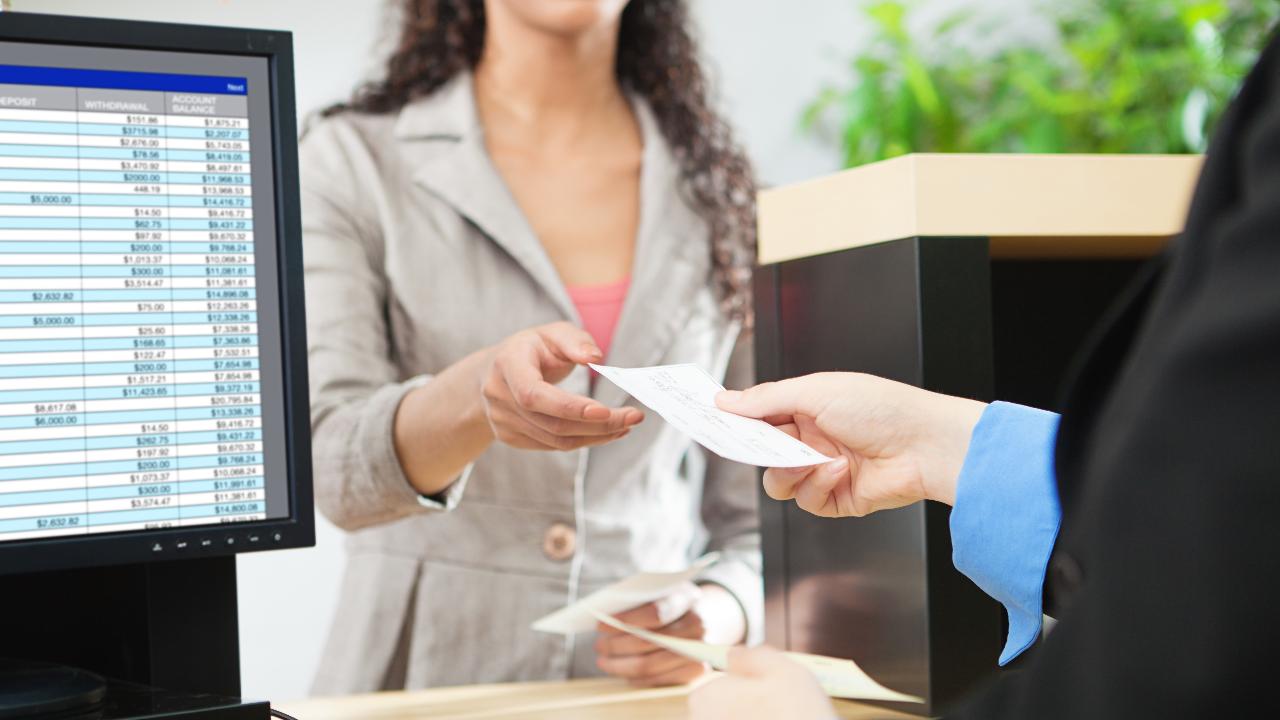Banks lobby Treasury to fix coronavirus PPP rule to prioritize real small businesses
Paycheck Protection Program was intended to help small businesses hardest hit by COVID-19
Get all the latest news on coronavirus and more delivered daily to your inbox. Sign up here.
Big banks are worried the uneven distribution of small business loans will further ignite nascent class warfare tensions and they are now trying to get ahead of what they say is a looming public relations nightmare.
FOX Business has learned senior executives at the nation's big banks are speaking with Treasury Department officials to explore ways to close loopholes created in the Paycheck Protection Program (PPP) that allow profitable financial firms, law firms and restaurant chains to essentially move to the front of the line and in front of many legitimate small businesses who were the intended recipients of the government's pandemic stimulus program.
The PPP legislation was intended to help small businesses hardest hit by the coronavirus-related shutdowns and quarantines. Under the pandemic stimulus plan, $350 billion was earmarked to provide government-backed, low-interest, forgivable loans to small businesses, as defined by companies with fewer than 500 employees. Congress is now on the verge of passing legislation to fund another $250 billion in loans, in which businesses would receive the lesser of $10 million or a percentage of their payroll.
CORONAVIRUS SMALL BUSINESS LOAN PROGRAM RAN DRY — WHAT HAPPENS NOW?
The loans are forgivable if the business doesn't lay off its workers, but layoffs are often inevitable because the government checks only go so far and many didn't get the money before it ran out last week.
Thousands of small businesses applied, but as FOX Business has reported over the past two weeks, the initial funding allocated for the program was hardly enough to meet demand. One reason: Banks had to ration the money based on factors such as customer relationships and which outfits applied first. Banks said they were constrained by those benchmarks to make loans because Treasury didn’t specify how the loans would be handed out. Thus, they were afraid of legal liability if they set their own standards.
And the result has been devastating. According to the small business advocacy group the National Write Your Congressman organization, 70 percent of small businesses applied for the first tranche of the PPP loans, but banks could only approve 46 percent of those applications. Meanwhile, scores of small businesses are telling FOX Business they’re not getting money amid reports that big restaurant chains like Ruth’s Chris Steakhouse as well as publicly traded companies like Shake Shack and Potbelly Sandwich Shop got millions in these loans. Hedge funds and other financial businesses often get preferential treatment as well because they use banking services more than say a local hairdresser, as FOX Business reported.
And now banks are worried the backlash over how the loans were administered will stoke class warfare against the financial industry similar to or worse than what followed the 2008 financial crisis when banks got massive bailouts while Main Street suffered through the Great Recession and the weak economic recovery that followed.
FED'S BOSTIC SAYS U.S. SMALL BUSINESS MAY NEED UP TO $500 BILLION MONTHLY IN SUPPORT
Banks believe they will be unfairly tarnished by the problems with the loan program since the Treasury Department has given only broad guidance on handing out checks. Executives, for example, say they can't prioritize their lending based on need because the Treasury didn't stipulate need as lending criteria. As a result, they argue, they were forced to lend first to their best customers, which means many smaller businesses got pushed aside and money went to bigger, more financially secure businesses.
For those reasons, banks are looking to plug the loopholes as Congress gets ready to dole out more money after the first wave of funds that were depleted last week. Leading the effort, it appears, is JPMorgan; One person with direct knowledge of the matter told FOX Business that executives at JPMorgan on Monday were “in discussion with Treasury” on how to ensure the true small businesses get their fair share of the loans.
A JPMorgan spokesperson had no comment. A Treasury spokesperson did not respond to calls and text messages asking for comment.
Banking executives aren't hopeful that Treasury will write new rules to make sure small businesses aren't crowded out as the second round in loan money gets ready to be disbursed. “(The Senate) just wants to take the old bill and add an additional $250 billion to it," said a senior official at a bank lobby group who spoke on the condition of anonymity. "It’s the only way to pass this bill with Congress out of town.”

In this April 8, 2020, photo, small businesses are shuttered during the coronavirus epidemic in the Crown Heights neighborhood of the Brooklyn borough in New York. (AP Photo/Mark Lennihan)
Altering any portion of the bill may prove too complicated when the money needs to be disbursed quickly, the official added. Even though loopholes in the bill are widely criticized, changing it could take discussions back to the drawing board, he said adding: “One person’s technical change is another person’s weakening of the bill.”
And the money is needed as soon as possible. The Federal Reserve has pumped an estimated $10 trillion of stimulus through money-printing, slashing interest rates and buying various risky securities in the market, which has had the effect of propping up trading revenues among investment banks, hedge funds, brokerages and private equity houses, and the stock market.
Small businesses, such as restaurants, coffee shops, butchers and any other business that depends on foot traffic, were among those companies most vulnerable to the measures designed to limit the spread of the virus. And they remain maybe the most important part of the economy, accounting for nearly 50 percent of the American workforce.
But unlike Wall Street, Main Street’s bailout has been orders of magnitude smaller; the federal government has passed a single $2 trillion spending plan to help individuals through payroll tax credits and free money, while Main Street businesses could apply for just a combined $600 billion in forgivable loans once the new PPP allotment is approved.
And many critics of the program say high unemployment numbers and a sharp slowdown in economic growth while the stock market has come off its lows are signs the Main Street stimulus hasn't been effective. Another indication of Main Street's economic despair as the virus shutdown continues: The price of oil.
GET FOX BUSINESS ON THE GO BY CLICKING HERE
Oil is seen as a key barometer of the economy's health partly because it can be used to indicate consumption, one of the key drivers of economic growth. Oil futures crashed Monday amid a sell-off that was sparked by technical factors and a realization that the economy is shakier than the recent rise in stock prices has been indicating.
However, longer-dated contracts show oil trading much higher, indicating market players believe the stimulus could help the economy recover in the summer or fall.





















